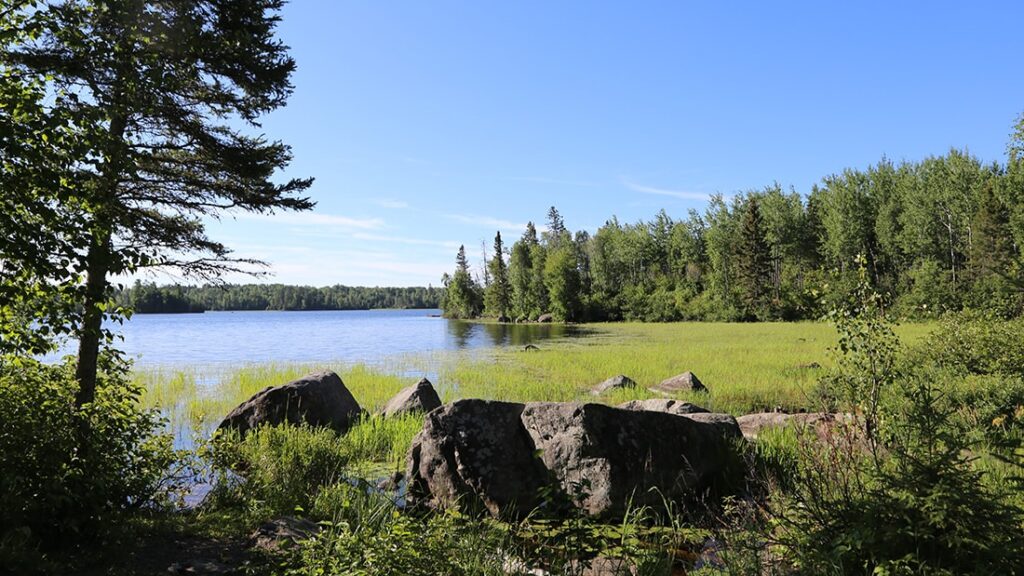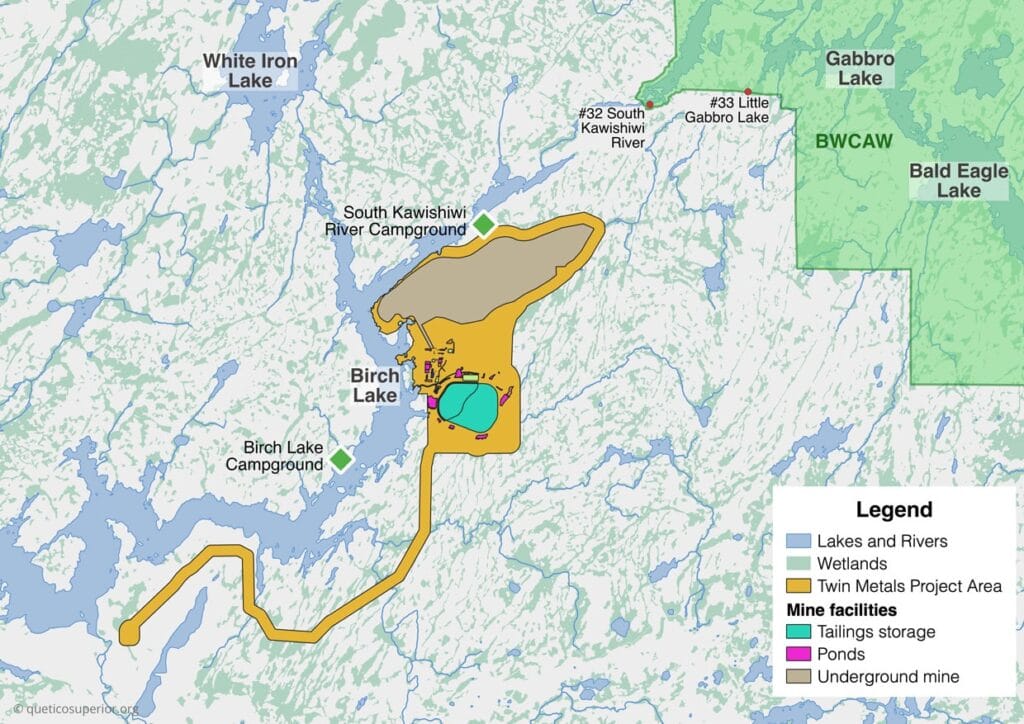
A group of Minnesota state representatives and senators has joined with environmental groups to support a new level of protection for lakes and rivers in the northeast part of the state.
In a commentary published in the Star Tribune, Friends of the Boundary Waters Wilderness executive director Chris Knopf was joined by 11 DFL legislators calling for a “Prove It First” law.
Such legislation would require mining companies to show a mine that has not polluted elsewhere before receiving a permit in Minnesota. The authors wrote:
“Considering that other mines designed to be ‘zero-discharge’ have both polluted and resulted in catastrophic environmental disasters, it’s reasonable to ask for proof. Especially if one of the parties involved is a notoriously polluting industry seeking to operate next to America’s most visited wilderness area.”
“In this spirit, the co-authors of this article, who are members of the Minnesota Legislature, are working with Friends of the Boundary Waters Wilderness and other environmental organizations to enact a ‘Prove It First’ law in Minnesota. This common-sense law would ask mining companies to put their money where their mouth is. Simply put, a ‘Prove It First’ law would require an applicant seeking a permit to open a copper-sulfide mine to prove that such a mine can be operated and closed without causing pollution. Before they put a shovel into the ground, operators of a copper-sulfide mine would need to show Minnesotans an example of a copper-sulfide mine that has operated elsewhere in the United States for at least 10 years and has been closed for 10 years, without causing pollution.”
– Counterpoint: We need a ‘Prove It First’ law for mining in Minnesota, Star Tribune, Dec. 20, 2020

The Prove It First legislation is modeled on a law in Wisconsin that was in effect from 1998 to 2017. No new mines were permitted during that time.
In a counterpoint to the Prove It First commentary, a Twin Metals executive argued that the mine will already have to prove it is safe before receiving permits. Chief regulatory officer Julie Padilla wrote:
We, too, care deeply about the environment, and we believe the science supports this project. We have spent 10 years designing a mine that prioritizes worker safety and environmental protection. The fact of the matter is nothing will proceed with this project if the science doesn’t show it can meet the stringent regulatory standards in place designed to protect the environment. And those standards also ensure ongoing monitoring and compliance requirements during operation and closure of a mine.
– Counterpoint: Let Twin Metals project prove itself through regulatory process, Star Tribune, Dec. 20, 2020
The latest moves comes on the heels of Dec. 12 article in the Star Tribune about whether Twin Metals can operate on the shores of Birch Lake without “a drop of contaminated water escaping the site.”
Mining experts interviewed for the article expressed skepticism that Twin Metals can prevent pollution.
“Although the company is confident it can achieve zero discharge in Minnesota, it’s far from clear whether it can. Not only does the mining industry have a dismal track record of leaks and spills, but most zero-discharge mines in North America are in arid regions where water evaporates, such as Arizona. The Twin Metals site is so soggy that to build the mine, crews would have to drain and fill more than 100 acres of marsh, bogs and other wetlands.”
– Success of Twin Metals copper mine hinges on holding every last drop of tainted water, Star Tribune, Dec. 12, 2020
Multiple copper-nickel mine proposals in northeastern Minnesota have raised concerns for a decade about the potential for acid mine drainage and catastrophic water pollution. Such metal mines represent much different environmental risks than iron or taconite mining.
The PolyMet proposal near Hoyt Lakes has received permits but is facing significant legal challenges. Twin Metals, located near the Boundary Waters Canoe Area Wilderness, recently submitted the first phase of its proposal but has yet to begin environmental review or permitting.
The commentary was co-signed by the following legislators:
Rep. Jim Davnie, DFL-Minneapolis
Rep. Kelly Morrison, DFL-Deephaven
Rep. Alice Hausman, DFL-St. Paul
Rep. Steve Sandell, DFL-Woodbury
Sen.-elect Jen McEwen, DFL-Duluth
Sen. Chris Eaton, DFL-Brooklyn Center
Sen. John Marty, DFL-Roseville
Sen.-elect Lindsey Port, DFL-Burnsville
Sen. Steve Cwodzinski, DFL-Eden Prairie
Sen.-elect Ann Johnson Stewart, DFL-Wayzata
Sen. Patricia Torres-Ray, DFL-Minneapolis
Environmental groups supporting the legislation include Friends of the Boundary Waters, Sierra Club, Honor the Earth, WaterLegacy, Minnesota Center for Environmental Advocacy, Wilderness Watch, and several others.
More information:
- Prove It First – Friends of the Boundary Waters Wilderness
- Counterpoint: Let Twin Metals project prove itself through regulatory process, Star Tribune, Dec. 20, 2020

